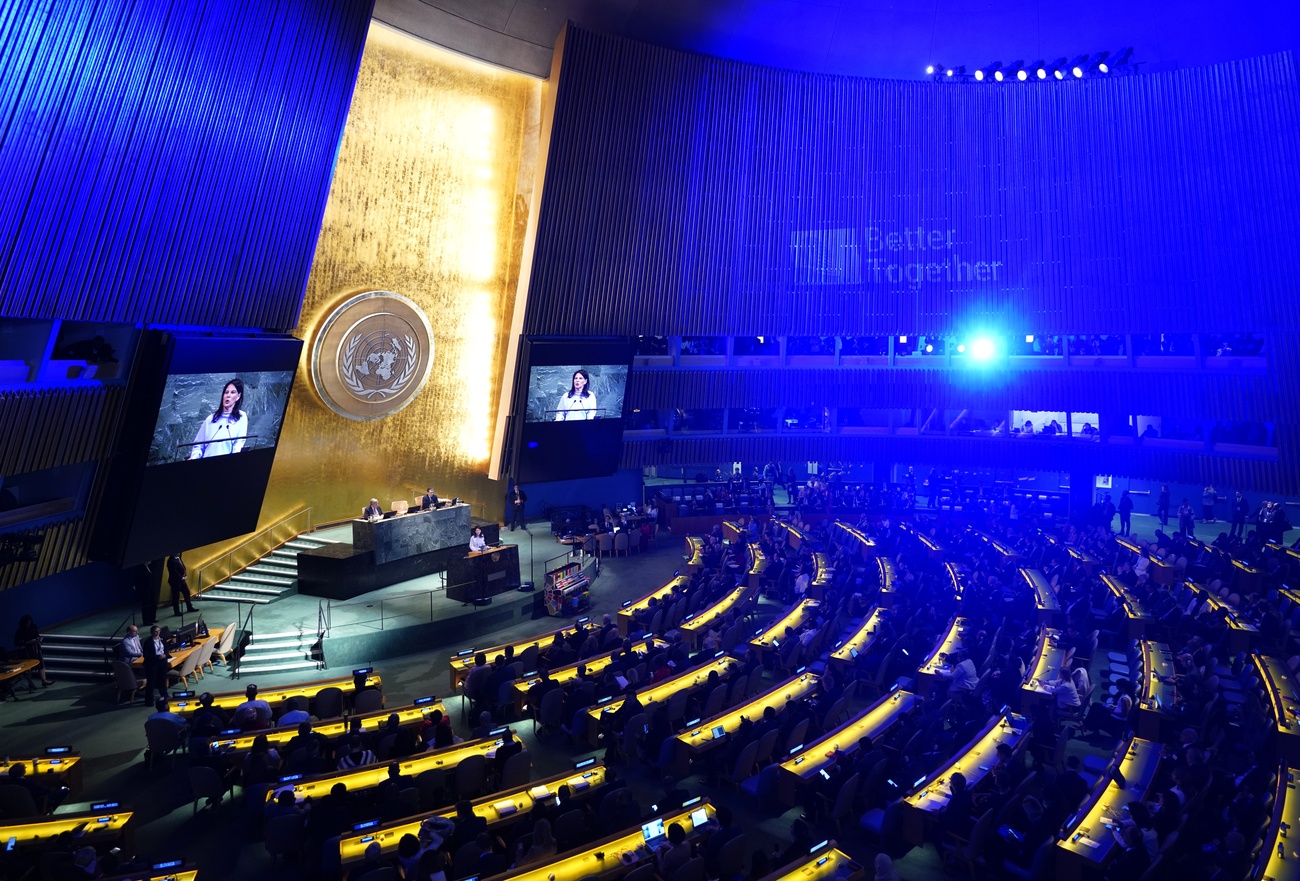
Tax chiefs consider cantonal reforms

Swiss finance bosses are meeting to discuss reforming the way cantons set tax rates following Obwalden's controversial decision to set up a degressive system.
Obwalden sparked criticism from some cantons after voting in the lowest corporate tax rates in Switzerland on January 1 with 18 rivals also lowering their taxes in the New Year.
Canton Zurich accused Obwalden of freeloading on their amenities and experts fear that degressive tax will have a negative impact on the economy if the system spreads to other cantons.
Under a degressive (or regressive) income tax system, marginal tax rates fall as personal income rises. The system in Obwalden reduces taxes for all residents, but more so for those earning over SFr300,000 ($233,000) a year.
But Finance Minister Hans-Rudolf Merz praised Obwalden’s bold move, becoming the first cabinet member to comment on the issue last week. Merz backs tax competition between the cantons, saying the only alternative is tax cartels.
The intensified tax competition topped the agenda when the 26 cantonal finance chiefs met on Friday, according to spokesman Kurt Stalder.
“We would like to have the system in Obwalden analysed by independent experts, who could then make recommendations to us,” he told swissinfo.
“Degressive tax has been seen as problematic by some parties. The solution might be for a set of non-bindings recommendations from these experts that would have some substance and we can all agree to follow.”
Question of fairness
The recent developments in cantonal tax competition could have a disastrous effect on the economy, argues Professor Gebhard Kirchgässner, a tax expert at St Gallen University.
“If this is just a case of a few small cantons competing for a few rich people, then it will be no problem,” he told swissinfo.
“But if degressive taxation becomes widespread it could encourage tax evasion and reduce the willingness of some people to work.
“It’s a question of fairness, and if the tax burden is shifted onto low and middle income earners, they may not think they are paying a fair share.”
Kirchgässner believes Canton Zurich is particularly disadvantaged by smaller neighbouring cantons lowering their taxes.
Zurich cannot afford to lower taxes much further as it has more services to finance, while rich residents attracted to the likes of cantons Zug and Schwyz can “freeload” by using these nearby services without paying for them, he said.
Political reaction
The centre-left Social Democratic Party announced on Friday that it did not now intend to challenge the new legislation.
The Social Democrats had initially vowed to fight the new tax system, which they consider unfair, and had encouraged residents to take the issue to court.
They say it contravenes the Swiss constitution, which calls for taxes to be paid according to an individual’s or a company’s means.
According to the Social Democrats, two local residents willing to take legal action had been found but one withdrew their complaint three days ago out of fear of losing their job.
The party said it did not want to focus all the public pressure – and threat of reprisals – on just one person.
It added that it regretted the current climate of public intimidation that had prevented citizens from exercising their rights.
The European Commission has also criticised Switzerland’s policy of creating tax breaks to attract rich foreigners.
Last year the EC said the system might infringe the terms of the 1972 Free Trade Agreement. This led to a series of talks between officials of both sides that are still ongoing.
swissinfo, Matthew Allen
Switzerland sets some of the lowest corporate tax rates in the world, attracting multinational companies to set up holdings in cantons such as Zug, Schwyz, Nidwalden and Obwalden.
The European Union believes this may contravene the 1972 Free Trade Agreement signed by Switzerland and the EU.
Swiss and European Commission officials met on December 15 in an effort to resolve the problem, but progress was limited. The EC may take retaliatory measures if it can prove its case against Switzerland by the end of March.
Last December canton Obwalden voted to introduce a degressive tax system that came into force on January 1.
The system reduces taxes for all residents, but more so for those earning over SFr300,000 a year.
Corporate tax rates were slashed to just 6.6%, becoming the lowest in Switzerland. Property tax dropped by at least 30%.

In compliance with the JTI standards
More: SWI swissinfo.ch certified by the Journalism Trust Initiative




























You can find an overview of ongoing debates with our journalists here . Please join us!
If you want to start a conversation about a topic raised in this article or want to report factual errors, email us at english@swissinfo.ch.